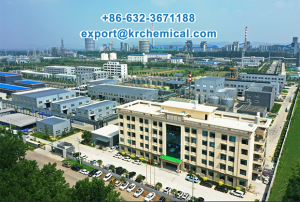Propylene glycol corrosion inhibitors are chemicals added to systems containing propylene glycol (PG), typically used to prevent the corrosion of metals, particularly in environments where propylene glycol is used as a coolant or antifreeze. Propylene glycol itself is a versatile, water-soluble compound that is commonly used in applications such as HVAC systems, automotive antifreeze, de-icing fluids, and heat transfer fluids, due to its low freezing point and good heat transfer properties. However, in these systems, corrosion of metal surfaces (such as copper, aluminum, steel, and brass) can still occur over time, especially in the presence of water or moisture.
Role of Propylene Glycol Corrosion Inhibitors
Corrosion inhibitors for propylene glycol systems are designed to protect metal surfaces from oxidative damage and degradation caused by water, oxygen, and other factors. These inhibitors form a protective layer on metal surfaces that prevents or minimizes the interaction between the metal and the corrosive agents in the system.
Types of Propylene Glycol Corrosion Inhibitors
Corrosion inhibitors for propylene glycol typically fall into the following categories:
- Organic Inhibitors:
- Carboxylates: These are often used to prevent corrosion in automotive cooling systems or HVAC systems. Carboxylate-based inhibitors are commonly formulated with a mixture of organic acids (like sebacic acid or dicarboxylic acids) to provide excellent protection against corrosion in glycol-based coolants.
- Amine-based Inhibitors: Organic amines (such as imidazolines) can be added to inhibit corrosion, particularly in closed-loop systems. They often work by neutralizing acids and forming protective films on metal surfaces.
- Inorganic Inhibitors:
- Silicates: These are commonly used to prevent corrosion in cooling systems. Silicates form a protective barrier on metal surfaces to reduce the rate of corrosion.
- Phosphates: In some applications, phosphates are added to propylene glycol systems for corrosion protection, especially in industrial systems, by forming a thin protective film on metal surfaces.
- Hybrid Inhibitors:
- Some propylene glycol corrosion inhibitors are blends of both organic and inorganic compounds, combining the benefits of each. These can provide broader corrosion protection across various types of metals and a wider range of operational conditions.
- Chelating Agents:
- Chelators like ethylenediaminetetraacetic acid (EDTA) are sometimes included in glycol-based systems to bind metal ions (e.g., iron, copper) and prevent them from catalyzing corrosion processes.
Key Characteristics of Propylene Glycol Corrosion Inhibitors:
- pH Stability: Corrosion inhibitors need to maintain the pH level of the system within a range that prevents corrosion. This is typically around neutral to slightly alkaline (pH 7-9).
- Temperature Resistance: In cooling systems, the inhibitor must be effective at a wide range of temperatures since propylene glycol-based systems often operate at elevated temperatures.
- Compatibility: Inhibitors must be compatible with other system components, such as seals, gaskets, and hoses, to prevent degradation or failure.
- Long-Term Protection: Effective inhibitors should provide long-lasting protection to metal surfaces throughout the operating life of the glycol-based fluid.
Applications of Propylene Glycol Corrosion Inhibitors:
- Automotive Cooling Systems: Propylene glycol is often used in automotive antifreeze solutions. The corrosion inhibitors prevent rust and corrosion in radiators, engine parts, and cooling system components.
- HVAC Systems: Propylene glycol is used in heating, ventilation, and air conditioning (HVAC) systems, particularly in closed-loop hydronic systems. Inhibitors are crucial to prevent corrosion in piping and heat exchangers.
- Industrial Cooling Systems: Propylene glycol is also used in industrial chillers and cooling systems. Corrosion inhibitors are essential to protect metal surfaces and maintain the efficiency and longevity of the system.
- Solar Thermal Systems: Propylene glycol is used as a heat transfer fluid in solar heating systems. In these systems, corrosion inhibitors ensure the long-term reliability of the system by preventing metal degradation.
- De-icing and Anti-icing: Propylene glycol is commonly used in airport de-icing fluids. Corrosion inhibitors in these fluids protect the equipment used in spraying and the metal surfaces exposed to de-icing solutions.
Conclusion
Propylene glycol corrosion inhibitors are crucial for protecting metal surfaces in systems that use propylene glycol as a coolant or antifreeze. By preventing corrosion, these inhibitors extend the life of the system, improve its efficiency, and reduce maintenance costs. The choice of inhibitor depends on the specific system requirements, including the types of metals used, operating temperature range, and compatibility with other chemicals in the system.

